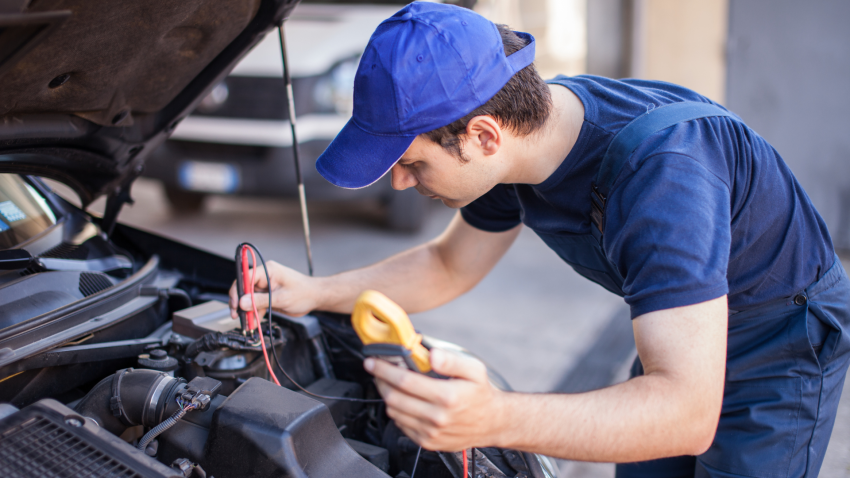Did you know that four percent of all drivers between the ages of fifteen and nineteen are teen drivers?
Car troubleshooting is a crucial skill that anyone who owns at least one vehicle needs to possess. It can also save you precious time and money.
Knowledge is power, and the more you know how to fix your car, the more freedom and financial reward you will acquire.
Keep reading to learn about nine common car troubleshooting problems and how to fix them.
1. Engine Won’t Start
Check the basics, the battery, starter, and fuel system. If those are all working, it’s likely a more major engine problem. That includes checking the spark plugs, fuel injectors, and more.
If you still can’t find the issue, then it’s time to take it to a mechanic for a closer look.
2. Car Won’t Start in Cold Weather
Check the battery if your car won’t start in cold weather. If the battery is good, check the starter and alternator because if they’re not working, the car won’t start. You can also check the fuel system and that the fuel filter is not clogged. if it is, then it’s time to do some research on Donaldson filter cross referencing to find one that fits your car’s system.
Finally, check the antifreeze level. The radiator must be full because the car won’t start if the antifreeze is low.
3. Car Won’t Accelerate
If your car won’t accelerate, it could be a problem with the fuel system, the spark plugs, the ignition system, or a clogged exhaust. You can troubleshoot these potential problems by checking the fuel level.
Make sure the spark plugs are working and inspect the ignition system and exhaust for any blockages.
4. Car Is Leaking Fluid
The first step in fixing the problem is to identify the type of fluid leaking. Common fluids that can leak from a car include oil, coolant, and transmission fluid. Once you have identified the kind of fluid, the next step is to determine the source of the leak.
The most common sources of leaks are cracked hoses, gaskets, and seals. After you have found the root of the leak, you can repair or replace it.
5. Car Is Making Strange Noises
Identify the source of the noise. If it’s coming from the engine, it could be a sign of a loose belt or a problem with the motor engine itself. The brakes or suspension have a problem if the noise is from the wheels.
If it’s a simple problem like a loose belt, you can fix it yourself or else take it to a mechanic.
6. Car Is Overheating
If your car is overheating, check the radiator, and be sure there is enough coolant. If it is low, add more and see if that fixes the problem. Then check the thermostat and see if it is working and if the radiator is full.
If it is not, then you need to replace it. Finally, check the water pump and be sure it is circulating the coolant. It needs a replacement if it’s not working.
7. Car Is Shaking or Vibrating
If your tires are worn down unevenly, they will cause your car to shake or vibrate. To fix uneven tires, you will need to get your tires balanced or replaced. Another common cause of a vehicle shaking or vibrating is a faulty engine mount.
If your engine mount is broken or worn out, it will cause your engine to move around, which will cause your car to shake or vibrate. To fix this, you will need to get a new engine mount.
8. Car Is Stalling
It could be something as simple as a dirty air filter or a clogged gas line. Or, it could be something more serious, like a faulty ignition coil or a bad fuel pump.
To troubleshoot the problem, check the air filter and replace it if it’s dirty. Then, check the gas line to make sure it’s not clogged.
9. Flat Tire
If you have a flat tire, check the air pressure in the tire. Then inflate the tire to the recommended pressure, if it is low. Check for a puncture if the tire is already inflated.
If you find a puncture, use a tire patch or plug to fix it. If the tire is still flat, you may need to replace the tire.
Consider These Car Common Issues and Solutions
By familiarizing yourself with these common issues, you can minimize the risk of death while driving. Don’t worry if your car engine won’t start, or won’t start in cold weather, won’t accelerate, is leaking fluid, making strange noises, overheating, is shaking, is stalling, and has a flat tire.
Check out this handy guide to troubleshooting common problems and fixing them yourself. So next time your car starts acting up, you’ll know what to do.
Want to know more? Continue reading our informative blog posts on our website.


